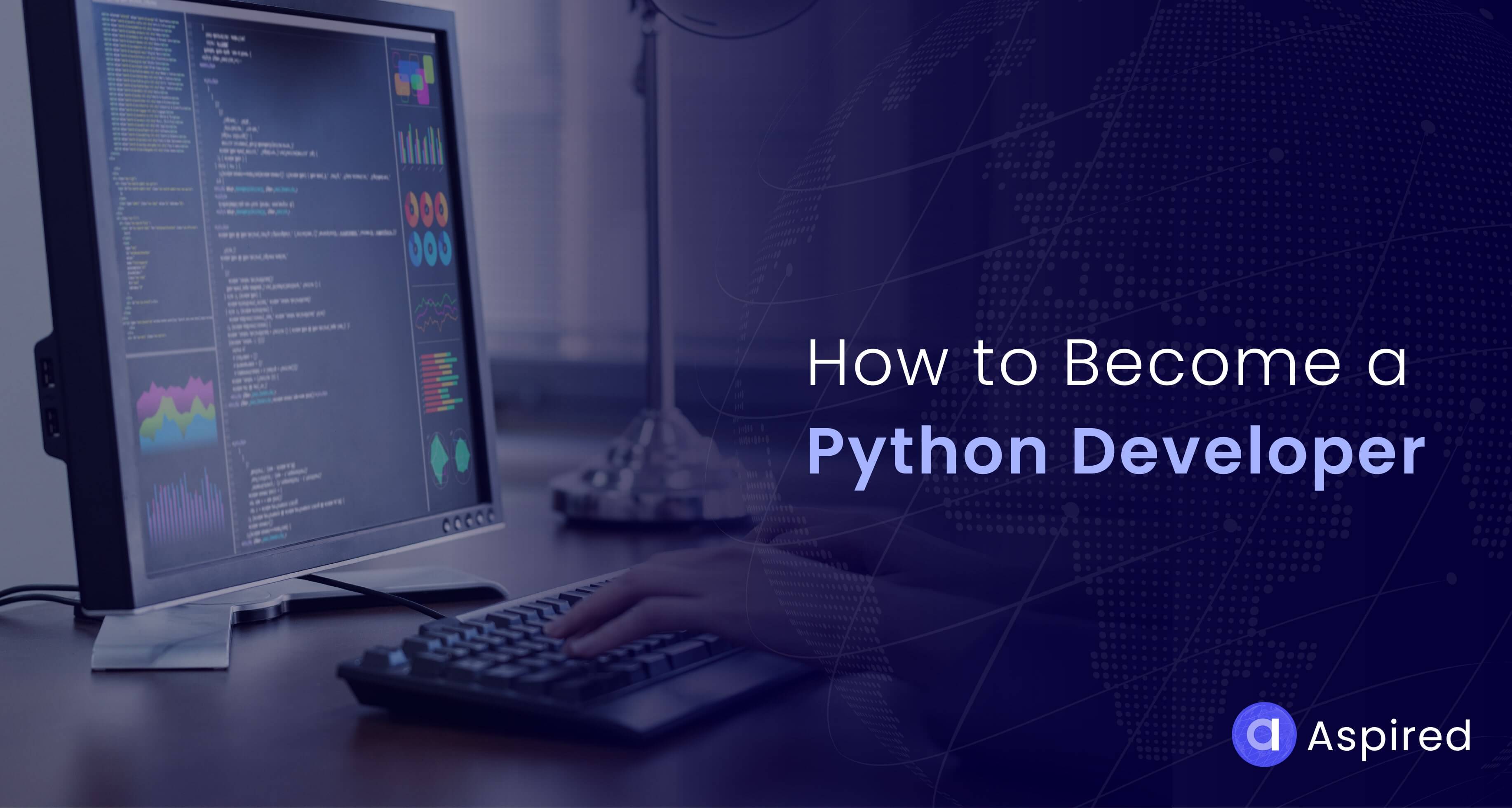What is common between Netflix, Facebook, Spotify, and Pixar? All of these giant companies use Python as their primary language. According to a survey by Statista 48.07% is the percentage of software developers worldwide that use Python as their coding language per the data 2022. These numbers help Python continue to stake its claim in the ‘web development world as one of the most in-demand programming languages as we enter 2023.
Learning Python early on is now a no-brainer for those aspiring to gain extended exposure within their careers in software engineering. Unlike JavaScript, HTML, and CSS, Python is not meant to be "the Building Blocks of the Internet." Instead, it is a general-purpose programming language that supports diverse programming paradigms beyond web development and software development. Moreover, despite being a high-level, object-oriented, interpreted, open-source programming language, Python still qualifies to be among the most user-friendly. and that is not even the best part.
Industry experts believe Python has a future-making ability as this programming language is set to play a key role in emerging technologies such as machine learning (ML), artificial intelligence (AI), deep learning, and data science. Moreover, its wide range of libraries and frameworks, flexibility, wide community & support, and huge collection of packages make it best suitable for cutting-edge technology domains.
With Python's popularity touching new heights every day, Gen Z coding enthusiasts cannot stop asking whether all of this converts into a python developer's salary. Well, that's a difficult say. Nonetheless, if you want to become a Python developer, that's great. Python is an amazing language that's both powerful and versatile.
But where do you start? And more importantly, how do you ensure you're learning everything essential for your role? Don't worry; we're here to help. In this write-up, we'll walk you through everything you need to know to become a Python developer.
What Are the Benefits of Learning Python?
The benefits of learning Python are plenty. First, it's a high-level, general-purpose language that can be used for various applications—from web development to data science and machine learning.
Python is easy to learn and use because of its clear syntax and readable code structure. It's also widely used in the industry because it has been around for more than 20 years (it was first released in 1991 ), as such there is plenty of support should you ever need help or assistance with your codebase!
Versatility: Python is a universal language. It's used for web development, data science, machine learning, and AI - as well as developing desktop applications (web servers), mobile apps (iOS/Android), and games.
Easy to Understand: Despite being a high-level language with a multitude of applications, Python has a simple, clean and readable syntax. It uses white space indentation to define blocks and has a very easy syntax. With the large community of developers surrounding it, you can't go wrong with learning this language!
Readable And Maintainable Code: Python is a dynamically typed beginner-friendly language with huge similarities to the English language. It uses simple syntax, which makes it easy for anyone to understand and maintain the code. This will help you get more work done in less time.
Minimal Program Management: Python is an object-oriented, data-driven, and interpreted programming language and therefore requires minimal upfront development time compared to compiled languages such as C++ or Java. The main focus of the language is on clear code and readable documentation, making it ideal for beginners.
Open-Source Tools and Frameworks: Python has a large collection of open-source tools and frameworks that you can use to start your journey into web development, data science, machine learning, and artificial intelligence. You can also benefit from its huge and dynamic community to join hands with some of the smartest minds in the industry.
In-Depth Libraries: In addition to the standard libraries, a number of third-party libraries can be used in your projects. These include Pandas and NumPy, which provide access to data structures such as lists and arrays; Regexp (for parsing text), TensorFlow (for implementing machine learning models), Scikit Learn (for performing machine learning tasks), PyOpenCL (for performing GPU-based computations) and more.
Future Areas of Specialization in Python
Python is a universal language that you can use on the backend, front end, or full web application stack. But that doesn't mean that Python applications are confined to the web applications, mobile solutions, and system management. Instead, you can focus on future areas of technology, start from today, and become an expert in that particular domain.
Some of the future areas of specialization in Python are:
- Data analysis and scientific computing with NumPy, Pandas, and SciPy
- Machine learning with TensorFlow, Keras, and Theano
- Artificial intelligence with PyTorch and Keras
- Web scraping with BeautifulSoup and Selenium
- GUI development with Tkinter and PyQt
How to Become a Python Developer?
Here's the thing—you can't just become a Python developer overnight. It takes time, commitment, and a whole lot of hard work.
But, if you're willing to put in the effort, becoming a Python developer is a great way to start a rewarding career in tech. So, how do you become a Python developer? Here are four steps to get you started:
Learn the basics of Python programming. This includes learning how to write basic programs, work with data types and operators, and understand the control flow. This could be leveraged from an online course or, which is easily available to most.
Get familiar with the Python ecosystem. This means knowing which tools and libraries are available and how to use them. It also means understanding common development practices, such as unit testing and version control.
Build something with Python. The best way to learn is by doing, so try building a small project or two. This will help you better understand how Python works and how to use it effectively. Reading other people's codes and trying to recreate things between the lines is one way of doing it.
Stay up-to-date with the latest trends. The Python landscape is constantly changing, so staying up-to-date with the latest trends and technologies is important. This will help you be a more well-rounded developer and make you more attractive to potential employers. Reading books on Python and staying active in the community will help.
Key Skills A Python Developer Must Have
Expertise in Core Python
Obviously, one cannot master the Python programming language without developing expertise in core Python. Good Python developers would know the difference between Python 2 and 3, the basics of Python's data structures, and the basic syntax and semantics of all the modules, regardless of their use priority. Other aspects of mindful knowledge include Iterators, Exception handling, Generators, OOPs Concepts, Data Types & Variables, and File Handling.
Good Grip on Python Libraries
A good grip on Python libraries is one of the most important things you can do to make your life easier as a Python developer. There are many great libraries, and they all work together to accelerate your Python growth when it comes down to writing code or making decisions about what data structure should be used. Depending upon the nature of the project, one should have ample know-how of libraries to make the workflow efficient and speed up the task execution.
Sound Knowledge of Web Frameworks
Knowing Python frameworks is a must-do for a Python developer, but that does not mean one will require to know all of them. Some popular options that every Python developer crosses paths with at least once in their careers include Flask and Django. Flask is a web application framework that can create and deploy microservices at high velocity. And Django is a high-level Python web framework that makes it possible to quickly create safe and enduring websites.
Object Relational Mappers
Object Relational Mappers (ORMs) are a tool that helps you to interact with databases such as MySQL, PostgreSQL, and SQLite. Programmers use ORM tools to interact between two systems and convert data without knowledge of the underlying programming language. Python-dev teams' most preferred ORMs include SQL Alchemy, Django ORM, etc.
Machine Learning and AI
This will be a huge plus point for any Python developer if one develops a basic understanding of how Python plays a role in Machine Learning, Artificial Intelligence, and deep learning, as these are emerging fields. Furthermore, the developer should be able to demonstrate a reasonable viewpoint about data analysis, methods for collecting data from various sources, visualization of data, producing insights from the data, and neutral Networks.
Multi-Process Architecture
The multi-process architecture is a software design pattern that divides a program into multiple sub-processes. Each sub-process can be executed in parallel with one another, and each has its own memory space and CPU time. This allows you to use multiple computers to run your code simultaneously. A python developer should understand multi-process architectures like MVT (Model View Template) and MVC (Model View Controller) Architecture and the codes used in their release and deployment.
Version Control
Version control manages changes to documents, computer programs, and large websites. It's a key concept in software engineering and knowledge management. The primary purpose of version control is to provide tools that allow you to work on multiple versions of the same project at once; this means you can update your codebase without fear that someone else will overwrite their changes before you're ready for them (or worse yet, be unable to revert).
Conclusion
Python is one of the most popular programming languages in the world, and its demand will only increase in the next few years. So, if you're considering becoming a Python developer, you're making a great decision. Not only is Python versatile and easy to learn, but its popularity will continue to make it an in-demand skill.
To become a Python developer, you must have a strong understanding of Python syntax and object-oriented programming. You also need to be proficient in a text editor, have a basic understanding of HTML and CSS, and be able to use the Linux command line.
Interested in hiring vetted Python developers for your project without wasting time interviewing and aligning the schedules? Contact Aspired.io and assemble your dream remote team, today!

 Clients
Clients
 Processes
Processes
 Blog
Blog










